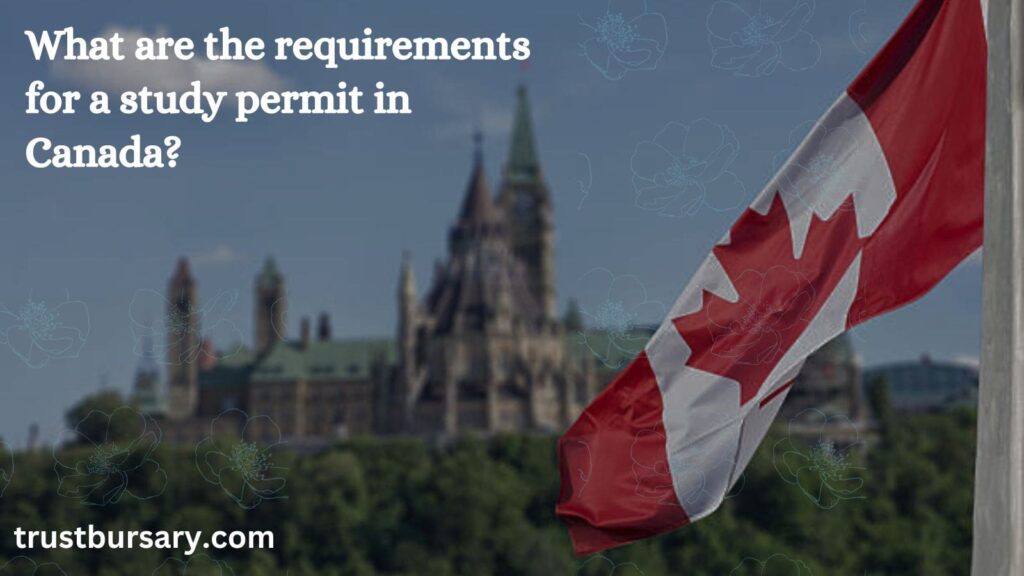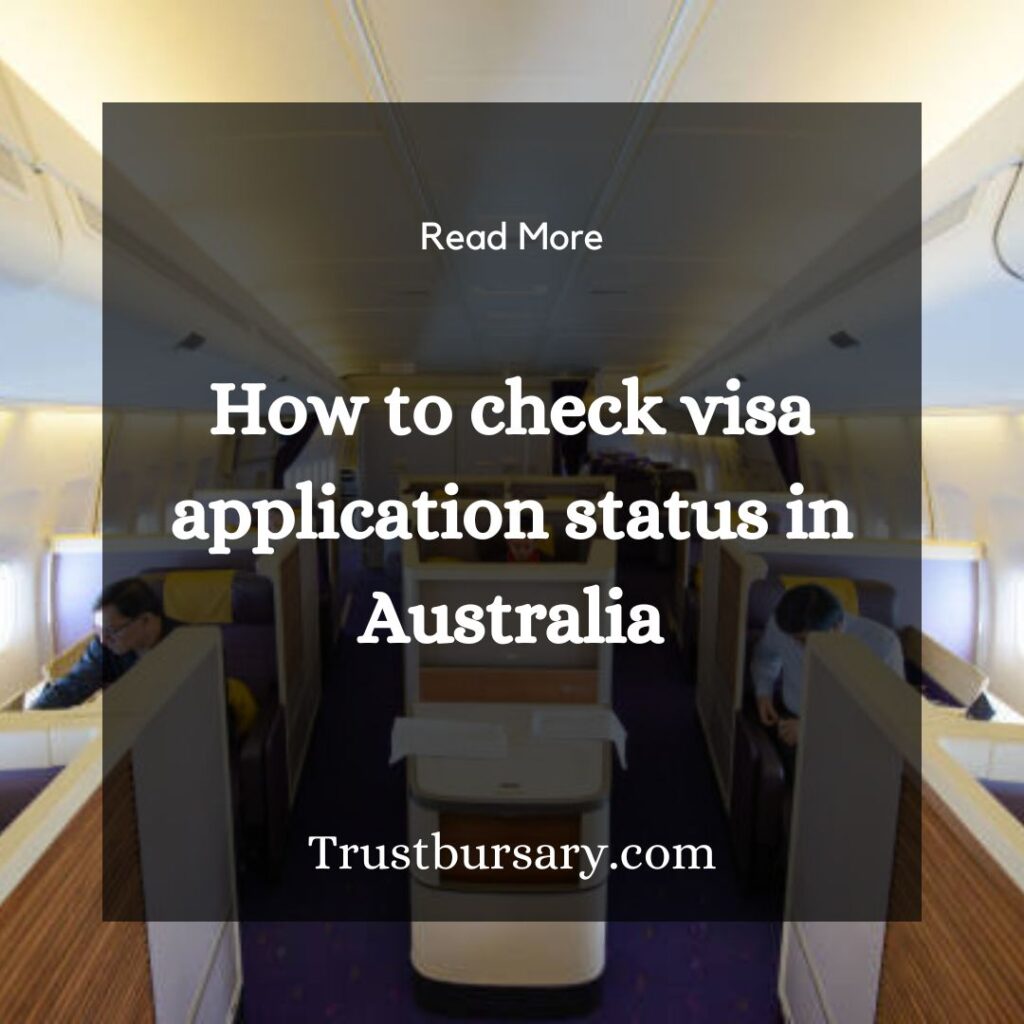Canada is one of the best countries in the world to study and has recently become the darling destination for international students seeking an excellent education.
The country is currently ranked the third best place in the world to study and international students love it here.
With a world-class education system, high academic standards, and rigorous quality controls, Canadian universities consistently rank among the best.
The country’s multicultural environment in addition to its reputation for safety and low crime rates ensures that as a student, you have nothing to worry about.
They also offer Post-graduation work opportunities which allow students to stay back (if you wish) in the country after graduation and build a career.
If you want to study in Canada, you need more than just your student visa, you also need a study permit.
Also read: How to avoid Canada student visa refusal
Your student visa allows you to enter Canada for academic purposes but your permit grants you the right to engage in academic activities in Canada.
To get your study permit in Canada, you need the following requirements.
What are the requirements for a study permit in Canada?
During your study permit application, you will be asked to upload the following documents:
-
Acceptance Letter from a Designated Learning Institution (DLI)
A fundamental requirement for getting a study permit in Canada is securing admission to a Designated Learning Institution (DLI).
You can’t be talking about getting a study permit in Canada if you have not been offered (and accepted) admission to study in the country by a designated learning institution in Canada.
Also read: How do I correct a mistake on my UK visa application after submission?
DLIs are recognized by the Canadian government and adhere to specific quality standards.
Once you apply for admission to study in any DLI in Canada, your application will be considered and subsequently admission will be offered to you.
Also read: How do I know if my France visa is approved
If you accept the offer, you will be issued an Acceptance Letter.
Make sure that the institution you plan to attend is on the list of approved DLIs.
-
Proof of Identity
Valid passport: Your passport is a very important requirement for a study permit in Canada.
Think of your passport as your official ID card. It’s needed for various processes, including getting your visa, entering the country, and other official stuff.
Canadian immigration authorities care about this, so having a valid passport is a big deal.
Also read: How to check visa application status in Australia
It must be valid for your entire stay in Canada, so make sure it won’t expire while you’re studying.
Here’s the key point: Check your passport’s expiration date. If it’s going to expire while you’re studying in Canada, you’ll need to renew it.
Applying for a study permit with an expiring passport will cause you problems, delays, or even a rejection.
So, you need to keep your passport up-to-date.
-
Proof of financial support
When it comes to proving you have enough money to support yourself while studying in Canada, there are two main things to show: tuition fees and living expenses.
Firstly, for your tuition fees, you need to provide proof that you’ve paid them.
This could be a receipt from your school or college. It’s like showing that you’ve already taken care of the cost of your classes.
Secondly, you need to demonstrate that you can cover your living expenses while in Canada.
This includes things like accommodation, food, transportation, and other day-to-day costs.
To prove this, you can use bank statements to show you have enough money.
Scholarships or a letter from someone financially supporting you can also be part of this proof.
Also read: How to apply for an international passport in Nigeria
Essentially, Canadian authorities want to make sure you won’t struggle financially while you’re there.
-
Completed application form
Fill out the study permit application form accurately. Make sure all your details are correct.
Mistakes can slow things down or even stop your application. Take your time to get everything right.
Don’t leave any part blank. Tell them about yourself, your education, and your plans in Canada. Incomplete forms can cause issues.
Also read: Why Australia is better than Canada for study
Always be honest. Giving wrong information can lead to your application being rejected.
Be truthful about your school history, what you plan to do in Canada, and anything else they ask.
Read the instructions that come with the form. Each part might have specific rules, and following them is important for a successful application.
Before you submit your application, double-check it. Look for mistakes or missing info. It’s a good idea to get someone else to look at it too.
-
Proof of English/French Proficiency
Depending on the language of instruction at your chosen institution, you may need to prove your proficiency in English or French.
You can do this by taking any of the many standardized language tests such as IELTS, TOEFL, or DALF.
-
Health and Medical Examinations
Your medical report is also important, you need to undergo a medical examination by an approved panel physician to ensure you meet Canada’s health requirements.
The medical examination is very important if your program in Canada will allow you to stay in the country for over six months.
-
Security/Police Clearance
Just like the medical report, you need to provide a police certificate or clearance from your home country, proving you have no criminal record.
Also read: Benefits of studying in the USA for international students
The immigration authorities need this to ensure that you are not a security threat to Canada.
They only want people who won’t destroy the safety and security of Canada’s residents.
-
Biometrics
You also need to submit your Biometric information, including fingerprints and a photo – they are required for all study permit applicants.
To do this, you can schedule an appointment with the immigration authorities at a designated visa application centre.
-
Statement of purpose
If you don’t have one already, you have to Draft a compelling statement of purpose outlining your reasons for studying in Canada, your chosen program, and your plans.
This document helps immigration officers understand your motivations and intentions.
-
Demonstrate ties to your Home Country
Finally, you must provide evidence that you intend to return to your home country after completing your studies.
This is a key requirement, and you can demonstrate it in various ways.
One way is by highlighting your family ties. If you have close family members in your home country, it shows a connection that suggests you have reasons to return.
Similarly, if you have promising employment prospects waiting for you back home, it signals to the authorities that you have a career path planned out in your country.
Property ownership is another indicator. If you own property in your home country, it signifies a significant investment and commitment, further reinforcing your intention to go back.
Essentially, this requirement is about providing evidence that ties you to your home country.
Also read: Is life easy for international students in Canada
It’s a way to assure Canadian authorities that you see your time in Canada as a valuable experience, not a permanent move.
If you have all of these documents with you, you can proceed with your study permit application.
Conclusion
If you have been offered admission to study in Canada and have gotten your student visa you can start your study permit application process even before travelling to Canada.
To get started, head to the Immigration Refugees Citizenship Canada official website by clicking here to create an account, fill out the application form, upload all the documents listed here and submit your application.



